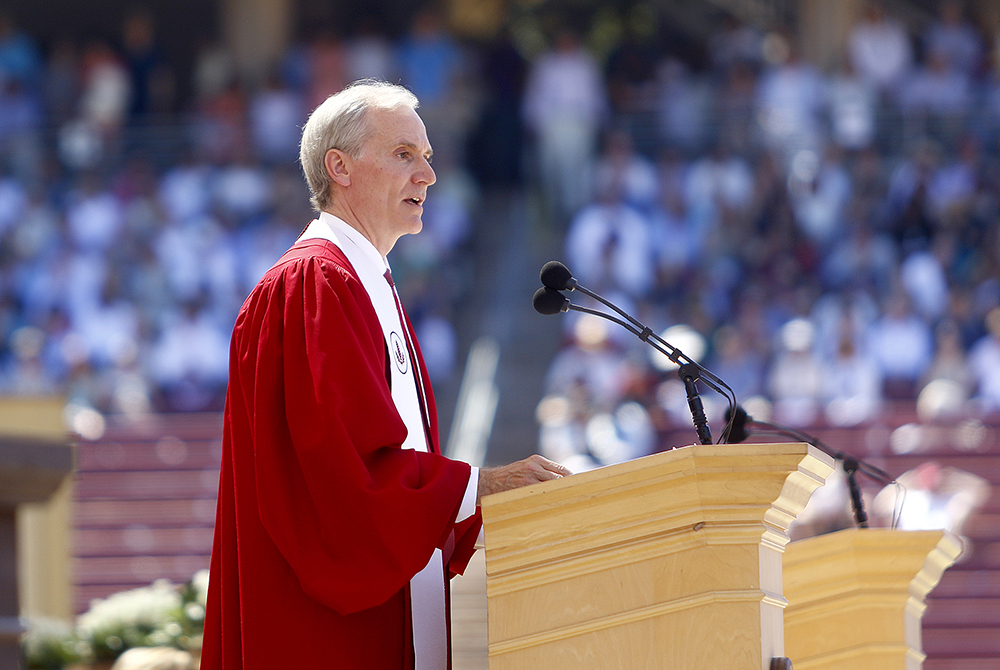Stanford University announced this week that it will investigate allegations of scientific misconduct involving its president, Marc Tessier-Lavigne, after an independent student news outlet published an article detailing suspected problems with research papers where he's listed as an author.
The Stanford Daily's Tuesday, Nov. 29, article explored possible image manipulation in four papers, including two where Tessier-Lavigne is the lead author.
Scientific misconduct expert Elisabeth Bik detailed to the Daily problems with the papers, including duplicated and altered images.
"There appear to be a lot of visible errors in these papers, and some duplications are suggestive (of) an intention to mislead," Bik said in the Daily article.
University spokesperson Dee Mostofi confirmed to this news organization on Wednesday that Stanford would be launching its own review.
"In the case of the papers in question that list President Tessier-Lavigne as an author, the process will be overseen by the Board of Trustees," Mostofi wrote in an email.
Board of trustees Chair Jerry Yang released a public statement on Friday, Dec. 2 with more information about the special committee that he is appointing to examine the allegations. According to Yang, trustee Carol Lam will chair the committee, with Yang and trustees Felix Baker, James Coulter and Jeffrey Stone serving as the other members.
"In initiating this review, I want to assure the Stanford community that appropriate attention and resources are being devoted to this matter. The special committee will conduct its work with all deliberate speed," Yang said, adding that the committee would be engaging with "expert outside advisors" on its work.
Yang praised Tessier-Lavigne's work as president, writing that "he has effectively led this university with integrity and honor."
Mostofi also released a quote attributed to Tessier-Lavigne, backing Stanford's investigation.
"Scientific integrity is of the utmost importance both to the university and to me personally," Tessier-Lavigne said. "I support this process and will fully cooperate with it, and I appreciate the oversight by the Board of Trustees."
In the case of one of the papers, in which Tessier-Lavigne is listed among 11 authors, the research journal in which it was published has publicly said that it is looking into the issues. The EMBO Journal's editor-in-chief told the Daily that it was doing a "full due diligence screen" of the 2008 paper.
Allegations of misconduct in multiple papers where Tessier-Lavigne is an author have been made on PubPeer, a website where commenters can provide feedback on published scientific articles.
In the case of a 2001 study where Tessier-Lavigne is the lead author, Bik told the Daily that the paper included altered images.
"The photoshopping was done intentionally, there’s no way around it," Bik said, adding that the reason for the changes was unknown and not necessarily falsification.
In earlier comments to the Daily for its initial article, before the investigation was announced, the university acknowledged that there were "issues" with the papers, but said that in two cases the president was not involved in the "generation or presentation" of the questionable images. In two other cases, the university said that the problems "do not affect the data, results or interpretation of the papers," a claim that Bik disputed.
Tessier-Lavigne came to Stanford in 2016 after previously serving as president of The Rockefeller University in New York City. Before that, he worked as an executive at the biotech company Genentech.
His neuroscience research involved the study of brain development and repair, with a focus on degenerative brain diseases like Alzheimer's disease and Parkinson's disease, according to his biography on Stanford's website.



Comments